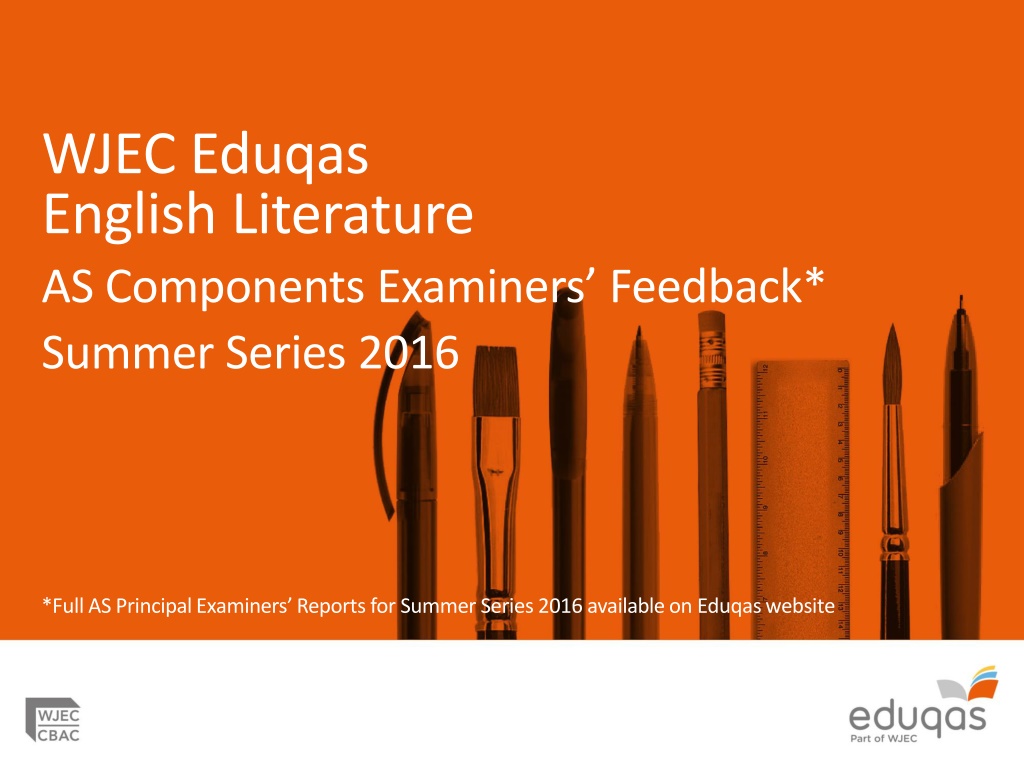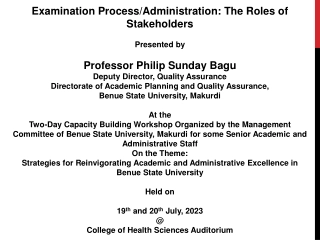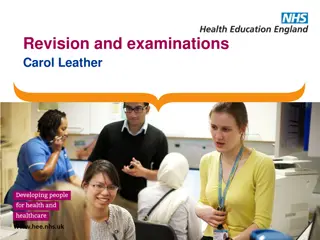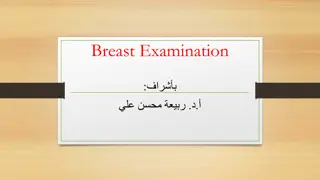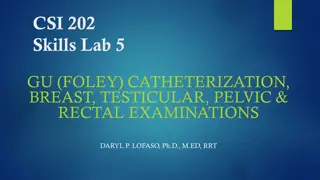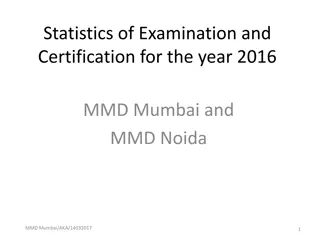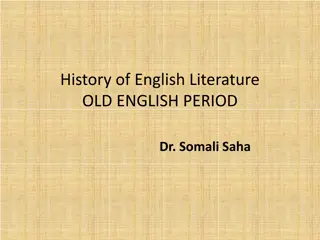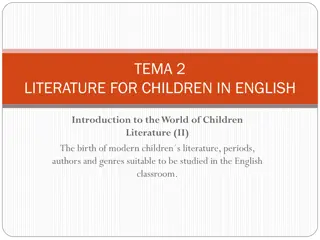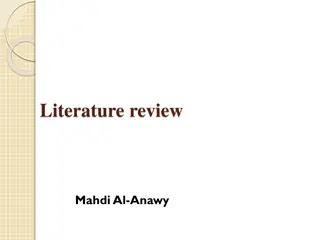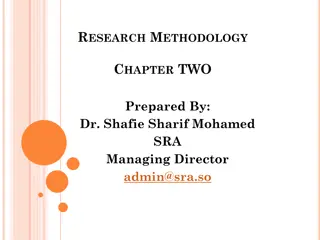Effective Strategies for AS English Literature Examinations
Targeting AO1 and AO2 in AS English Literature exams requires focused analysis of extracts and proper engagement with the task. Avoid irrelevant details, stay concise, and make every word count. For longer essay responses, plan carefully, engage directly with the question, and provide brief, relevant textual support. Contextual analysis should support literary responses without drifting into lengthy discussions. Use knowledge of context to enhance analysis, connecting it to AO1 and AO2 effectively.
Download Presentation

Please find below an Image/Link to download the presentation.
The content on the website is provided AS IS for your information and personal use only. It may not be sold, licensed, or shared on other websites without obtaining consent from the author. Download presentation by click this link. If you encounter any issues during the download, it is possible that the publisher has removed the file from their server.
E N D
Presentation Transcript
WJEC Eduqas English Literature AS Components Examiners Feedback* Summer Series 2016 *Full AS Principal Examiners Reports for Summer Series 2016 available on Eduqas website
AS English Literature: Examiners Feedback Short Answer Extract Questions: Targeting AO1 and AO2 4 Don t: Do: Remember only AO1 and AO2 are assessed here Focus closely on extract. Can allude briefly to wider play for AO1/AO2 but no requirement to contextualise extract within whole text unless relevant to task Hit the ground running and make each word count. Avoid wordy introductions which just repeat the question Engage with the task: if question relates to relationships , it is not sufficient to give separate character studies or discuss plot instead Dig into quoted text, analysing how meaning is conveyed: why writer chose that word or device; what s the effect? Keep genre in mind for AO2: narrative or dramatic technique? Stray too far from extract to other parts of novel/play Include description of events leading up to extract, especially if not directly related to question Waste precious time commenting on context (AO3) or other views (AO5) which are not assessed here Ignore the task or focus of question Only use embedded quotation to give simple narrative or commentary of meaning Plod line-by-line from start to finish making links with rest of text Focus too much on foreshadowing of future events which may make a valid point for AO2 but can lead away from close focus on the extract
AS English Literature: Examiners Feedback Longer Essay Responses: AO1 and AO2 Don t: 4 Do: Read question carefully Take time to consider approach and plan briefly Engage directly with task. Try to gain overview rather than just giving series of examples from text Stay focused. Use start and end of paragraphs to develop argument. Learn quotations; even in closed text essay responses brief, relevant textual support is expected Dig into quoted text used as support Limit number of English Language terms which can distract from focused literary analysis Keep timing in mind: brief, undeveloped responses mean low marks Ignore or change focus of task to write about different topic Regurgitate a rehearsed answer which isn t an individual or specific response to question Rely too heavily on extract from part (i) in two part questions Quote text without comment or analysis Allow response to become narrative or simply commentary of meaning Make unsupported assertions Make exaggerated or unrelated claims about devices eg verse form, enjambment, caesura, etc. Spend too long on any question
AS English Literature: Examiners Feedback Longer Essay Responses: AO3 Context Don t: 4 Do: Allow context to drive the response Drift into lengthy discussion of historical/social context not closely integrated with literary analysis of text. Lose line of argument and literary focus of task Forget that knowledge of context will not be rewarded in its own right Fall back on sweeping generalisations or vague assertions: All Victorian women were Rely too heavily on writer biography for context: it can be informative but must be handled carefully and clearly linked to wider context or AO5 as possible reading Ignore contextual steer in task and fail to address AO3 altogether. Keep key AO3 descriptors in mind: the significance and influence of context Start with the text. Remember: TASK TEXT CONTEXT Ensure that context is used to support literary response to texts and linked closely to AO1 and AO2 Link specific contextual influences directly to textual support Consider a range of contexts: historical; social; political; literary Where relevant, remember to consider influence of context on reception as well as writing of texts Try to use AO2 as a springboard for the other AOs so that context, connections and other readings are co-dependent rather than tagged on.
AS English Literature: Examiners Feedback Longer Essay Responses: AO4 4 AO4 Connections Don t side-line named poem which must be considered in some detail. Don t treat the poems separately. AO4 sheavier weighting must be reflected in response. Planning is essential. Allow time to choose question and the other poem(s) for links. Foreground connections between poems in planning. Best answers are built round key links. Developa few important, focused links rather lots of irrelevant, tenuous or asserted connections. Focus on literary and thematic links rather than ones based on context eg poet s life Compare the poet s technique in the poems. Don t plod through the poems line-by-line. Try to gain an overview and focus on what is important and relevant to the question. AO4 is only assessed in the Post-1900 Poetry essay (Component 2) Try to use AO2 as a springboard for the other AOs so that context, connections and other readings are co-dependent rather than tagged on.
AS English Literature: Examiners Feedback Longer Essay Responses: AO5 4 AO5 Other Views Engage with critical view in question. Keep critical view in mind when planning your approach to the question. Use critical view to inform and build your own personal response. You can counter or disagree with the view but this is not a requirement. Don t shoe-horn in lengthy critical opinionsyou ve memorised. Keep as brief as possible and only include if they re relevant to the question. Remember ways to address AO5: Engage with other readers opinions Consider other critical perspectives such as feminist, Marxist etc Offer alternative views of quoted text Use tentative language Try to use AO2 as a springboard for the other AOs so that context, connections and other readings are co-dependent rather than tagged on.
